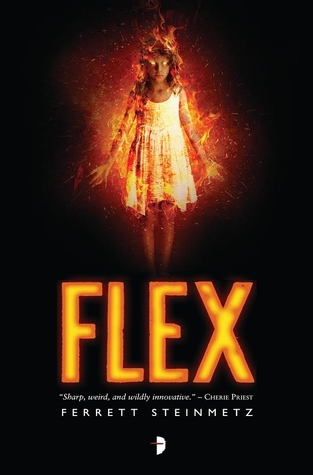Introduction
Awards are popularity contests. The Newbery Medal, given to the author whose book is considered to be the most distinguished in children’s literature out of a year’s worth of books aimed at young readers, is no different. I have never been on an awards committee. I have spoken to and taken classes from library professionals who have been on awards committees including the Newbery. They all are in some level of agreement that the most passionate voice often holds sway. This is not to say that book awards are without merit and that what goes on behind closed doors is not important.
If you look at the
winners of the most prestigious award in American literature for young readers from the inception of award the Newbery Medal in 1922, it’s rather obvious that the books selected have not been chosen by children for children. The list of winners is plagued by works that have gone out of print (or should have if not for the award designation), been loved by adults but not children, and are often difficult to sell to the target audience.
To say a revolution is afoot might be a false claim, but there does seem to be a sense of change coming, slow as it is.
In 2008 the committees were chastised for selecting books that are not universally loved by young readers or even read by them or the people who regularly work with children. However, the 2009 selection of Neil Gaiman’s
The Graveyard Book not only connected with adults but, surprisingly is enjoyed by the target audience and a rare genre (science fiction, fantasy, mystery, and so on) selection. (Nonfiction as winner is just as rare in case we're counting.)
Realistic fiction is awards bait between the dead or absent parents, children having to face the harsh realities of life such as the death of a loved one including but not limited to pets and family members, being misfits, being on a book long guilt trip, and just suffering in general. Orphans and dead pets in particular have long been overused to create drama and force a coming of age moment in realistic children’s fiction. So, for a book that has some of the previously listed elements but was also about friendship and family in a nontraditional way and a happened paranormal variety fantasy to be given the highest distinction, it was a sign that the times might be a changing. Or Neil Gaiman's just that brilliant and most librarians love him and he just plain deserved the award that year.
Not all the winners and honors since then have broken the mold. There is still plenty of favoritism in play and authors who, as well written and accomplished as they are, seem to simply awarded for publishing something in a given year. All it takes is one voice, one person with a deep seated passion for one book to push a book to medal winning status. It should be noted that any number of honor books can be designated from none to infinity, though in a given year there has never been more than four, though there are some years where none have been selected.
Below are the 2015 selections for the Newbery Medal and honors including a brief description of each and what might be some of the reasons why they were selected.
Winner
Alexander, Kwame.
The Crossover. Boston: HMH Books for Young Readers, 2014.
Someone suggested to me that this novel in verse was not a story but unconnected poetry about basketball. That person obviously did not read this book correctly. Alexander's medal deserving book is, actual, a strong narrative. Twelve year old Josh Bell discusses the highs and lows of his last basketball season through a variety of poems. What the book does well is make you feel the game even if you are not familiar with it. Josh also has to tackle some big changes including the different path he is taking from his twin brother Jordan who is more interested in girls than sports.
Alexander gets to the heart of what it's like to grow up without needing a plethora of words or resorting to cheap tricks. There's an honesty to the book and Josh as a character that is relatable regardless of one's age or background. That the poetry feels natural and each one leads nicely into the next without a break in flow makes
The Crossover stand out even more. It so easily could have been a device, but Alexander's ability to foreshadow deftly means you're eased into even the most emotional moments without feeling you've been cheated. Truly a masterful work and an example of how to craft a poetic novel that kids will enjoy.
Honor Books
Bell, Cece.
El Deafo. New York: Amulet Books, 2014.
The most interesting aspect of this book's selection for a Newbery honor is that it is, in fact, a graphic novel. The Newbery awards writing. The Caldecott is awarded to illustrators for book illustrations. I don't think Bell's book would be exactly high up the list for the illustration award, but I can say that the writing is quite strong.
El Deafo is the author's mostly autobiographical account of growing up with hearing loss. As a result of a meningitis infection at the age of four, she lost most of her ability to hear. The story is as much about fitting in as it is about the author finding her own self worth and not letting others opinions rule her life. Bell's writing of her own story appears to be of a no nonsense simplicity, but it still hits home as a coming into one's self story, made up alter egos and all. Young readers will love the format and relate to the story, hijinks and all. Adults will appreciate the bunny ears used throughout even characters without hearing loss.
Woodson, Jacqueline.
Brown Girl Dreaming. New York: Nancy Paulsen Books, 2014.
Woodson discusses what it was like to grow up essentially in two worlds and of finding her calling to writing through free verse poems. She writes about complex topics such as having to grow up and navigate the different ways of life in the south and in New York City. Family, religion, politics, and location are all recurring topics. Woodson is an excellent writer of free verse contemporary novels, but the inclusion of this book also feels a bit like an oft honored author getting another nod for doing something a little different. It's a different sort of autobiographical effort and the message of following one's dreams and believing in
something including oneself are important parts of the narrative and worth consideration even if adults undoubtedly will get more from this book than children.
Conclusion
The 2015 Newbery selections have the feel of a diversity that has not always been present in the awarding in the past, but still have a sense of similarity between them. Two books are written in verse, one is a graphic novel, two are by women, two by writers of color, one by are biographical in nature, one by a person with hearing loss. None are traditional narratives. This may be progress, but at the same time an oft honored but never winner is among the group. One thing is clear, though. The award and awarding of the Newbery Medal and its honors has changed since 1922. The times truly are a changing and it is only right that the writer to whom the Newbery Medal is awarded reflects the times. I, at least, can say that the winner, Kwame Alexander, is getting well deserved recognition for crafting a book I not only enjoyed experiencing but enjoy giving to young readers who feel the same after reading it.









